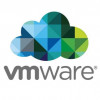Support for Communication Device Class Network Control Model
VMware ESXi 8.0 Update 3e Release Notes
Last Updated April 11, 2025
What's New
Support for Communication Device Class Network Control Model (CDC-NCM) in the ESXi USB driver:
Starting with ESXi 8.0 Update 3e, the ESXi USB driver supports the CDC-NCM protocol for compatibility with HPE Gen12 iLO Virtual NIC and interoperability with HPE Agentless Management (AMS), Integrated Smart Update Tools (iSUT), the iLORest config tool, Intelligent Provisioning, and DPUs.
ESXi 8.0 Update 3e adds support for vSphere Quick Boot to:
- Intel vRAN Baseband Driver
- Intel Platform Monitoring Technology Driver
- Intel Data Center Graphics Driver
- AMD Instinct MI Series Driver
Broadcom makes available the VMware vSphere Hypervisor version 8, an entry-level hypervisor. You can download it free of charge from the Broadcom Support portal.
Patches Contained in This Release
VMware ESXi 8.0 Update 3e
This patch resolves the following issues:
1. vSAN Specific Issues:
1.1 Update Performance:
1.1.1 vSAN OSA environment updates to 8.0 Update 3 might experience slower first reboots, especially with heavy workloads. This is resolved. (PR 3442191)
1.2 Space Usage:
1.2.1 Delayed cleanup of deleted components could lead to incorrect high space usage reports. This is resolved. (PR 3479338)
1.3 Checksum Errors:
1.3.1 Network outages in stretched clusters could cause incorrect checksum errors. This is resolved. (PR 3479340)
1.4 Performance Statistics:
1.4.1 Intermittent gaps in vSAN performance statistics were fixed. (PR 3484669)
1.5 psf file provisioning:
1.5.1 psf file provision type was changed to always use thin provisioning. (PR 3441150)
1.6 vSAN ESA Clusters:
1.6.1 Storage policy changes in vSAN ESA clusters with less than six hosts could cause performance issues during vSAN resync. This has been fixed. (PR 3463364)
1.7 vSAN Unmap Traffic:
1.7.1 High latencies and high CPU usage during peaks of guest unmap traffic that caused vSAN hosts to become unresponsive was fixed. (PR 3477062)
1.8 vSAN Disk Group:
1.8.1 vSAN hosts failing with purple diagnostic screen when commands issued to a vSAN disk group completed after 120 seconds was fixed. (PR 3473626)
1.9 vSAN Encryption:
1.9.1 False negative vSAN cluster configuration consistency health alerts after vCenter upgrades were resolved. (PR 3425316)
1.10 RDMA NICs:
1.10.1 Skyline Health alerts for NICs outside the vSAN configuration were resolved. (PR 3427281)
2. ESXi Host Issues:
2.1 ESXi Host Crashes (Purple Diagnostic Screens):
2.1.1 Multiple issues causing ESXi host crashes were addressed, including those related to virtual machine migration, NVMe-oF, heap cleanup, SCSI command processing, and network I/O scheduler locks. (PR 3459100, PR 3488415, PR 3467137, PR 3479464, PR 3433610, PR 3469014, PR 3483589)
2.1.2 AMD Turin CPU failures were fixed. (PR 3437835)
2.2 ESXi Host Unresponsiveness:
2.2.1 Issues causing ESXi hosts to become unresponsive, related to logging and user world initialization, were resolved. (PR 3484787, PR 3486025)
2.3 ESXi Host Logging:
2.3.1 Logging issues, including stopped logging and log daemon deadlocks, were fixed. (PR 3484787, PR 3469652)
2.4 ESXi Host Networking:
2.4.1 Issues related to virtual switch VMNIC reconfiguration, network load balancing, and NVMe over TCP controller recovery were resolved. (PR 3461166, PR 3481216, PR 3482259)
2.4.2 Duplicate traffic on multiple uplinks was fixed. (PR 3475015)
2.5 ESXi Host Storage:
2.5.1 Issues related to iSCSI target discovery, storage path unclaiming, and RDM LUNs were fixed. (PR 3481507, PR 3486955, PR 3470732)
2.5.2 NFSv3 snapshot consolidation failures were addressed. (PR 3460312)
2.5.3 Issues with NVMe Dell PowerStore clustered VMDK datastore recovery were fixed. (PR 3465259)
2.5.4 VMFS heap memory consumption issues were resolved. (PR 3480154)
2.5.5 iSCSI configuration restoring failures were fixed. (PR 3470385)
2.5.6 iSCSI boot time increases were fixed. (PR 3459526)
2.5.7 VMFS5 and VMFS6 datastore errors were fixed. (PR 3450501)
2.6 ESXi Host Virtual Machines:
2.6.1 Issues with virtual machine migration, vGPU configuration, and encrypted virtual machines were resolved. (PR 3341273, PR 3454942, PR 3477772)
2.6.2 UnixWare OS VM reboot issues were fixed. (PR 3460819)
2.6.3 Kubernetes control plane node read-only issues were fixed. (PR 3463099)
2.6.4 Virtual machines residing on a vSphere Virtual Volumes datastore becoming inaccessible was fixed. (PR 3433295)
2.7 ESXi Host Security:
2.7.1 Custom TLS settings for FDM were fixed. (PR 3461321)
2.7.2 DVSSync firewall ruleset deactivation was enabled. (PR 3450290)
2.8 ESXi host Active Directory:
2.8.1 ESXi hosts intermittently disconnecting from the Active Directory domain was fixed. (PR 3469107)
2.8.2 PowerCLI Active Directory domain account retrieval was fixed. (PR 3486556)
2.9 ESXi iSCSI boot:
2.9.1 ESXi installation on an iSCSI LUN failures were fixed. (PR 3469036)
2.10 ESXi DVD drive:
2.10.1 VM performance degradation caused by invalid DVD drives was fixed. (PR 3483610)
- vCenter Issues:
3.1 vSphere Client:
3.1.1 Issues with vSphere Client display of CPU usage and storage utilization were resolved. (PR 3451306, PR 3441150)
3.1.2 Alarms related to root login failures were resolved. (PR 3433436)
3.2 vSphere Virtual Volumes:
3.2.1 Memory leak issues with the Object Storage File System Daemon were fixed. (PR 3476179)
3.2.2 Virtual machine migration failures in vSphere Virtual Volumes datastores were fixed. (PR 3459100)
3.2.3 vSphere Virtual Volumes rebind operation failures were fixed. (PR 3451651)
3.2.4 NVMe Guest Controllers with SCSI vSphere Virtual Volumes on Windows Server Failover Clusters issues were resolved. (PR 3431433)
3.3 PowerCLI:
3.3.1 PowerCLI Active Directory domain account retrieval was fixed. (PR 3486556)
- General Issues:
4.1 Timestamps:
4.1.1 Incorrect timestamps when copying files with the cp command were fixed. (PR 3486647)
4.2 Power Management:
4.2.1 PowerSvc plug-in failures were resolved. (PR 3455315)


